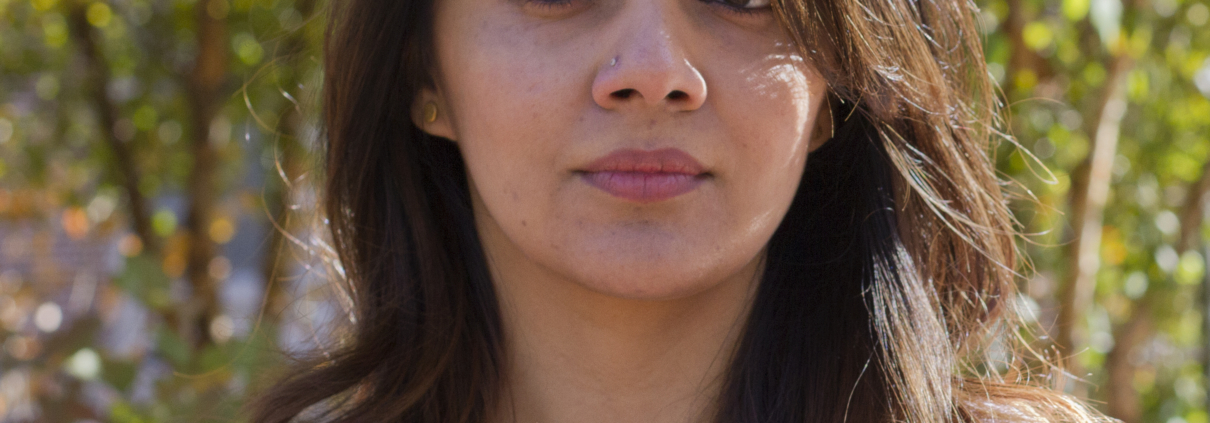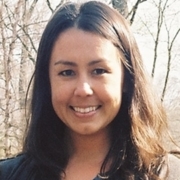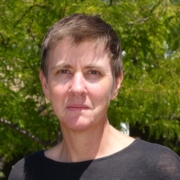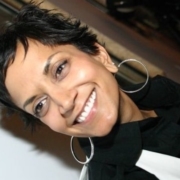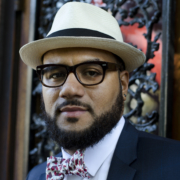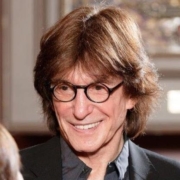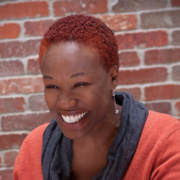Today we talk about the history and recent rise of Islamophobia worldwide. My guest is Mariam Durrani, an Assistant Professor of Anthropology at Hamilton College.

Finding, and measuring Islamophobia hate speech on social media. John Gomez/Shutterstock
In our conversation, we discussed both the state policy infrastructure enabling Islamophobia while also the everyday discourses and actions that normalize the Othering of a particular group. Dr. Durrani also discusses her own life story of growing up in a military family and witnessing the rise of Islamophobia in the aftermath of September 11th.
Mariam Durrani recently published the book chapter “Communicating and Contesting Islamophobia.”
Citation: Durrani, Mariam, interview with Will Brehm, FreshEd, 152, podcast audio, April 29, 2019. https://www.freshedpodcast.com/mariamdurrani/
Transcript, translation, and resources:
Will Brehm 0:02
Mariam Durrani, welcome to FreshEd.
Mariam Durrani 0:44
Thank you for having me.
Will Brehm 2:03
So, I want to start with a rather large question, and I’m not really sure how you’re going to answer this. But you know, to start what is Islamophobia, in your opinion.
Mariam Durrani 2:13
So, islamophobia is broadly understood as -I mean, by definition, it’s like the fear of Islam. But there is something that’s really missing by medicalizing this idea because it kind of relates Islam to something like the fear of spiders or the fear of small spaces, but it’s not really that simple. Islamophobia is also talked about as anti-Muslim racism. And so that’s a more descriptive term that helps to understand how fundamentally it’s a way of racializing a population. And it’s a population that isn’t seen demographically as a race, right? So, there’s certain you know, in the US Census, for example, you have white, black, Asian, Hispanic, etc., although I think Hispanic is an ethnicity, but Latino and that type of thing. But with Muslims, we’re not all one group. And that’s one of the things about this particular form of racism, which is, it racializes a very large population, where there’s a billion-sum Muslims on planet earth, and you have people from every continent, every background, every ethnicity. And yet, at the moment, there’s a way that this very large group of people is being seen as a monolith, as all the same, and as all having this kind of same culture. And so that might be the perception of it but then there’s also specificities that certain populations face, for example, Black Muslims face both anti-Black racism and anti-Muslim racism, and that can be compounded in particular ways. The other thing to keep in mind about Islamophobia is that it is both at the level of kind of state structure, state infrastructure and state policy, and then also experienced in the everyday by people in schools, at their workplace, just going to the grocery store. And it’s important to make sure to see it as linked, in this sense that it is not just happening, where some people don’t like Muslims. There’s a whole infrastructure that has been kind of mobilizing racism for other purposes, which, you know, is a much longer conversation on -like, what’s the reason for the war on terror and, and these types of things in terms of geopolitical strategy. But fundamentally, it has made it possible to see Islam as the enemy. And there have been very clear statements like that, by US presidents of kind of, ‘You’re either with us or against us”, from, you know, when George Bush was president, to more recently with Trump, you know, when he’s made statements like, “Islam hates us”. And so, this is part of how Islamophobia as a form of racism takes shape at the state and everyday level.
Will Brehm 5:28
So, is this a particular phenomenon that happens in America or because of American, say, infrastructure and state policy, or is Islamophobia something that is found across countries across the world?
Mariam Durrani 5:45
So, I think Islamophobia is found in many different parts of the world. You see it in many majority, white Western democracies these days as white supremacist movements are kind of targeting Muslim immigrants as part of both kind of an Islamophobic environment, but also a xenophobic environment where people who are seen as foreign, especially people who are racialized as Black or Brown are seen as especially foreign and possibly even dangerous. But I think that there’s also a way that within Muslim countries or even across Muslim countries, there is kind of targeting those who are most marginalized. And sometimes that won’t be like the majority Muslim sect, but it’ll be the minority Muslim sect, which will be seen as a problem. And it also is happening, for example, in India, with the current government over there where Muslim populations, especially young people are singled out and made to suffer. In China, you have the Uyghur Muslims, who have been put in detention camps, and are being forced to eat pork -over there it’s tied to like nationalist, kind of like movements, too. But all the ways that Muslim populations in various areas have been subjugated, historically, politically, economically. And then there is also this kind of state sanctioning for the mistreatment of this population. So, people every day are experiencing some of these issues.
Will Brehm 7:21
So, I would imagine Islamophobia has a history to it. And so, I guess what I’m wondering is what we are witnessing today, worldwide, all these different examples that you’ve mentioned about Islamophobia, in all these different countries, is this sort of more acute than previous times? Or is this not necessarily that unprecedented, in that Islamophobia has a longer history where there were other moments in time that were comparatively as bad, I guess I would use the word.
Mariam Durrani 8:03
I think in terms of academic work around Islamophobia, there’s often a connection that’s made to Orientalism. Which is a theory that Edward Said, who’s a professor at Columbia University. In 1978, he wrote a book called ‘Orientalism’, where he talks about this particular kind of British, French colonial project that saw the Orient. And often the Orient was made up of Muslims, especially in the Middle East as kind of exoticized and also kind of studied for the sake of colonization. And so, he was also represented back in Europe, in Britain, or in France, as this kind of exotic culture and these savages sometimes or like these kind of very clever people. So, there’s all these ways that there was this racialization process happening. It wasn’t talked about as such back then, or maybe it wasn’t even seen as a problem really, you know, like by the majority at that time just because of how colonial kind of logics work. But there was a history to it and then in terms of the term ‘Islamophobia’, I think it first was used in France, in the early 20th century. And then, later, in the late 80s, there was a report written in England, called the Runnymede Trust report, which I talk about in the chapter, which was a kind of study of Islamophobia. And that’s when Islamophobia was seen as kind of Muslims who were being marginalized or persecuted in England. And so, there was this attention in the 80s. And one can think, of course of like, the Iranian Revolution, and how that was perceived in the West as really this kind of moment where Iranian-Americans and Muslims were seen as kind of not, as, you know, modern, and seen as kind of backward or as kind of like religious in this like religious fanatic kind of way. And so, you had these moments in the past -and those were often also connected to the Cold War. But later, with 9/11, there was a significant shift where you had a US-led coalition that launched this offensive in Afghanistan in retaliation for 9/11 was the story. And then you have this war that’s still ongoing. So, we’re now almost 18 years into this war. And so that’s why I think it’s always important to connect it to these larger kind of like processes that are playing out -that what happens in the classroom, or what happens on the street is not completely disconnected from these macro level processes that people might not be directly involved with but are nonetheless kind of drawing on in terms of that sentiment.
Will Brehm 11:08
And so, your work does look at this sort of everyday level of what’s happening on the ground. And you focus on these micro-level linguistics to sort of detail how American Islamophobia is communicated. So, can you give us an example of what that actually means in real life? Like the way in which linguistics have been impacted by Islamophobia?
Mariam Durrani 11:32
Sure, I think there’s a number of ways that before 9/11, there might not have been that much awareness about Islam or about Muslims so broadly. I mean, there was certainly but not so much as it became after 9/11. And I think, for example, even this particular articulation of “You’re either with us or against us”, really demands that the listener align themselves, you know. And I remember there was even a line that Bush one said, of like, “You’re either for freedom, or you’re against freedom”. And so like, as you know, everyday Americans hear something like this coming from the president, and there has been this horrific tragedy that has happened on US soil, emotions are high emotions are really high, right? And in that moment, unfortunately, I feel like the political leadership initially did not understand or did not see that this was going to have this effect. Or maybe it wasn’t, I don’t know, even seen as important as this other task, which was national security. And so, there is a way that political discourse has, for the last, you know, almost 20 years, very clearly articulated this idea -at first, it was kind of like, “You’re either with us or against us”. And then later there became this idea of like, “the good Muslim versus the bad Muslim”. And so, there was this kind of demand on Muslim Americans, specifically, to align themselves with the right version of being Muslim because this more “marked” version, which might be the beard or wearing the hijab, or observing certain kinds of gendered practices that are seen by some as not about freedom, or what have you. Oftentimes, people want to know, do women have independence? Are women free? And there’s this kind of like oppressed Muslim stereotype and it gets produced in these kind of like everyday questions or conversations that people might have about Muslims that don’t necessarily get as much of a critical eye as maybe other kinds of stereotypes. It’s almost like sometimes, there’s been studies that have found that there’s a level of acceptance around racializing Muslims that is not as common in mainstream media when it comes to other kinds of racist stereotypes, which are clearly seen as, like, we do not say things that way. It’s a problem to say it that way. So, you know, with Ilhan Omar, for example, you know, there’s a lot of very pointed comments that are made about her, about her as a Muslim, as a Muslim woman. And those are the kinds of comments that you hear in the news, and then you might see in movies, and then it’s not surprising if students start speaking that way or have these incorrect ideas because they’re really getting it from a lot of different sources. And so, it only kind of solidifies these ideas, as real, as very much true or something.
Will Brehm 14:49
Yeah, I mean, it seems like a lot of these stereotypes sort of circulate in this social media, political realm, that just sort of reinforces each other and then ultimately, becomes a version of truth, as you said.
Mariam Durrani 15:04
Right. Especially I’m thinking of like, there was a moment in the Democratic National Convention in 2016, where they brought the parents of a gold star soldier to the Convention, and it was two parents, a father and a mother. And the mother had worn the hijab -she actually wasn’t wearing her job, she was wearing what we Pakistanis would call a “dupatta”, they were Pakistani-Americans, she was wearing a veil over her head. I remember both, feeling a little bit uncomfortable about having Muslim-Americans have to show that they were willing to sacrifice so much for the country to be seen, “real Americans”, you know, like there’s this way that had they been, like two engineers or something, it wouldn’t have had the same impact, right as like the parents of a fallen soldier, which obviously is very sad for them. And I completely understand why they did that. But I think the way that gets depicted is like, only if you are doing that, are you really like understanding what it means to be an American. And I’m really conflicted about that, partially, also, because my father was in the military -he was in the army for almost 25 years. And so, I also know what it’s like to be on the inside of the military community. And, you know, it’s a very complicated set of issues. But then the other thing was, when Trump talked about the mother, you know, the mother didn’t speak during the particular speech. The father was the primary speaker. And he said something about, like, “I don’t even know if she was allowed to talk”. And later, you know, she wrote an editorial in the Washington Post that basically said that, “It was just so emotionally difficult for me to be up there, that I wasn’t comfortable speaking”. You know, and so, like, her humanity, or her motherhood, was so invisible, if you reduce her to this caricature of a person who didn’t have the permission, supposedly, to speak. And so like, those are the ways again, that like, you know, at such a major platform, the representation of a Muslim woman is stereotyped and so this is why the current, you know, Ilhan Omar and kind of what she’s doing in terms of being a Muslim woman and an amazing figure in current, contemporary politics and getting a lot of attention is all the more interesting, given what people often stereotype about Muslim women. You know that’s a stereotype and it’s very inaccurate.
Will Brehm 17:40
What was it like living -You said you grew up with a father who was in the military, and that you had sort of conflicting views- I mean, what was that like? What was it like to experience -or did you experience Islamophobia through your interactions with various military officials and people just serving in the military?
Mariam Durrani 18:04
You know, so that’s a really interesting question. I would have to say that my experience was, on the whole, really fantastic. I think people who are in the military actually are very used to difference and are very, you know -we lived in Germany, so people were pretty international, had a lot of exposure to the world. And then also within the army, you have a lot of diversity within the military community. And so, I grew up in an environment where I think me being Muslim wasn’t necessarily the thing. I was certainly from an immigrant family and that was certainly present in the sense that I didn’t necessarily have the same reference points as my classmates and things like that. But that happens in a lot of settings where you’re the minority, but I wouldn’t say it was directed with kind of racist intent, or that type of thing. But it did shift after 9/11. I think after that, no matter where you went to school, that became visible. So, I was a junior in college attending the University of Arizona and after -first of all, when, when it happened, you know, everybody was just really shocked. And then when it came out that these were people who were identified as Muslims, it became very pointed of like, who was to blame. And so, it went very quickly from shock to like, directed kind of, you know, the, the local mosque was getting threatening messages. And then on campus, the newspapers started having a lot of articles that specifically said things like, “In Islam, it’s okay to do these types of things”, that it’s a violent with religion. And I just found that to be the most upsetting because my experience of being a Muslim was obviously not that. And so, I was really upset that this was what was being presented as if it was a valid kind of perspective to have. And so, my first kind of work around Islamophobia, even before I knew that that’s what you call it, was to write for my college newspaper. And I wrote for it for about a year and a half and during that time, I would write often about this particular issue, and like how Muslims were being treated. I remember, I wrote an article about being the daughter of a soldier and kind of, on the one hand, like, I know who people in the Army are, I had friends in the military, I grew up in that world, and nobody wants to go to war. This is not something that anybody is interested in doing. And so, the fact that it was then presented as like, “There is no other option, this is what we have to do”. And then to see that it has gone on for so long. And aside from, you know, the many people who have been killed, who are who were Americans in the war, there’s been thousands and thousands of civilians who have died as a result of this military campaign and it’s just very upsetting that it’s gone on. So, I think it’s just complicated, where I understand the military community is also not necessarily sees this as, you know, nobody wants to go to war. I mean, it’s just one of those things.
Will Brehm 21:37
it’s quite a fascinating story, because you’ve basically lived through and saw this shift in attitude in American public life both inside the military and inside civilian life in a way. And I guess, it’s interesting that you were in university while this was happening because it makes me wonder, you know, what is the role of education and schooling in either, sort of producing or reinforcing Islamophobia, while maybe also countering and providing alternative narratives, and fighting against Islamophobia? So, I mean, in your sense, what is the role of school in all of this?
Mariam Durrani 22:26
I think it’s so important that, given the way that American schooling has changed, especially over the last, like 50-60 years, where there has been this really concerted effort to, number one integrate number two. allow students to have a broader kind of perspective of the world and really kind of like have this kind of global education that we talk about a lot, both in terms of K-12 schooling and certainly in college and university, like educational context in terms of like, how do you prepare students for the 21st century? And I think that’s one of the reasons why it’s really important for educators to learn what this phenomena is, because it has become so incredibly pervasive in society. And to spend some time even thinking about how they might have some misconceptions about Muslims and like, what they can do to kind of address those misconceptions, right. For educators, there’s a lot of books, there’s articles, there’s a lot of even popular media, you know, that has been made to educate, to teach about what is the Muslim student experience. And you know, there’s been some really great documentaries actually, that that do this type of work. And then I think from a student’s perspective, it obviously depends on their developmental stage. So, for younger students, it would be about bringing in books into the classroom that represent Muslim stories and Muslim voices. I have written a short piece for the Harvard Education like online magazine, where I talk about, for example, when you’re teaching younger children, that one way of bringing in some awareness around culture within Muslim communities is to, for example, if you’re doing a segment on nutrition, and you’re talking about food, and you talk about how Jewish kids might eat kosher, Muslim kids eat halal, Hindu students might be vegetarian. And so, there’s this way of kind of showing Islam as this very, normal, everyday part of people’s lives. And I think, you know, educators sometimes do this thing of like, talking about Islam exclusively. And then you talk about other groups exclusively and especially for younger kids, I think seeing that we’re all people and that we all have different ways of being human is great. And I think it goes into older students as well but with older students, you can get a little bit more critical and have them read some of the history and understand where some of these ideas come from, and really recognize that these are tied to these broader ideas of racism and where racism comes from, and where this fear of the racialized “other” comes from historically. So, with older students, I think we can get into that. But for all students, I’ve found, especially for college students, it’s really helpful for them to understand the broader context, rather than just kind of like zooming in on like one story about Muslims. Because anytime you teach only one story, the danger of a single story, as Chimamanda Adichie has talked about is that it becomes “the” story, the only story. And so, you always want to have multiple stories being told at the same time.
Will Brehm 25:52
So, this sort of bottom-up educational approach to counter Islamophobia and counter racism, as you’ve been describing, do you think that will impact the state level, the state infrastructures that are supporting and furthering Islamophobia and Islamic racism? Or do you think something else is going to have to happen as well?
Mariam Durrani 26:19
Yeah, I think that it’s the second. I think, it’s definitely going to have to be a much broader effort just because of how this whole operation has grown, and how it is actually profitable at this point, for many very powerful people to continue some version -I mean, like, I was saying. When I say nobody wants to go to war, I’m also thinking of like, when you’re the child of a military service member who has to go, right. So, when these things are happening, when there are these massive military assaults, you know, interventions, campaigns, whatever you want to call them, they impact the whole family. And so like, I’m also thinking of the way that that plays out. And so, I don’t think that it’s so much about -like, I wish it was possible that we if we had anti-racist education, that it had such a far-reaching effect, because it would definitely make teachers and educators feel really great. But I think oftentimes, what we’re doing is responding to what’s happening in a much more global level. And, you know, I always think about how, while we do so much in addressing the anti-Black racism, there’s a way that until, you know, mass incarceration is addressed, or until we have some kind of immigration policy that doesn’t recognize anybody without particular kinds of citizenship to be seen as an outsider -there are these policy level issues, that will take so much longer to be affected by education. So, in the meantime, we often end up kind of responding to students fears, and especially to students of color, or Muslim students right now. I mean, my research with Muslim college students in New York, what I observed quite often, and I also see it with my own students, is that: one issue is that when you’re walking through the world, and someone says a slur to you, or pulls your hijab off, or expects you to apologize after a terrorist event as if you had something to do with it, right. For example, I gave a talk in New Hampshire and I remember there was a group of sixth or seventh grade girls, who were all second-generation, from the Middle East and North Africa and they came with their teacher, right. So, their teacher brought them to this talk that I was giving at this university. And afterward, they said, like, you know, it’s so hard, because people think that, you know, we have something to do with it. And it’s just kind of like unbelievable, right? That like, you would think that a 12-year-old girl living in a town in New Hampshire has anything to do with any of these issues. But that’s just how unreasonable and also just how deep some of these ideas are that like they defy rationality in some ways. But for some people, they seem perfectly rational. And so, I feel like it’s really the job of educators to be aware of this larger social context, to be there for students. And so, I thought it was so wonderful that this teacher brought these students to this talk, and these students felt like, yes, these issues that we’re facing, there’s a name for it, and there’s a whole story for it. And there’s people who are talking about it, and it’s not just me, alone, feeling this way, or just me and my friends, but actually adults who are actually really invested in figuring out what this is about, and how do we talk about it and educating a larger group and so yeah, I think it’s going to take a lot more to change it but I think in the meantime, there’s a lot that as educators we can do to make a safer and a better learning environment for all the students.
Will Brehm 30:24
Well, Mariam Durrani, thank you so much for joining FreshEd, it really was a pleasure of talking and I’m with you. I hope we can somehow change this infrastructure that is supporting Islamophobia and I hope educators can play a role in that.
Mariam Durrani 30:41
I agree. I agree. Thank you so much for having me.
Contesting Islamophobia in education and society

